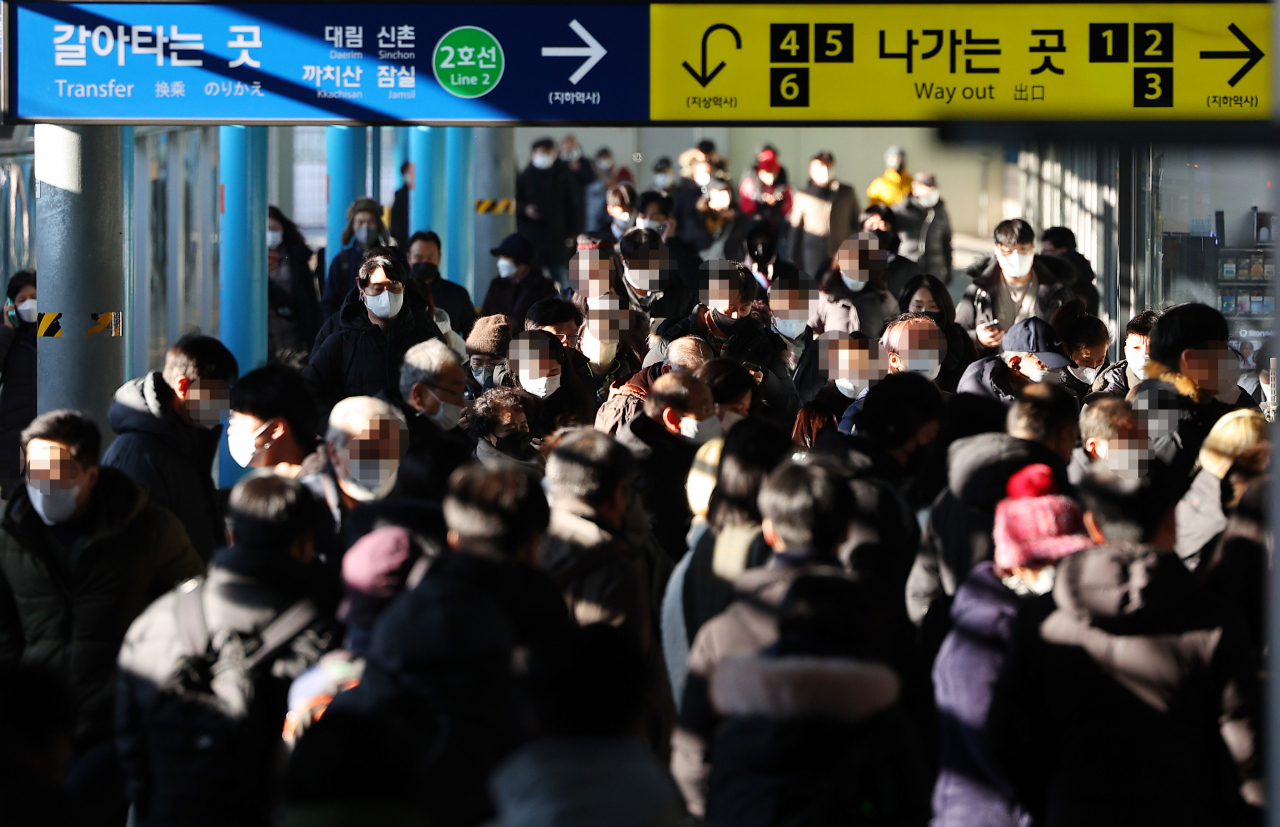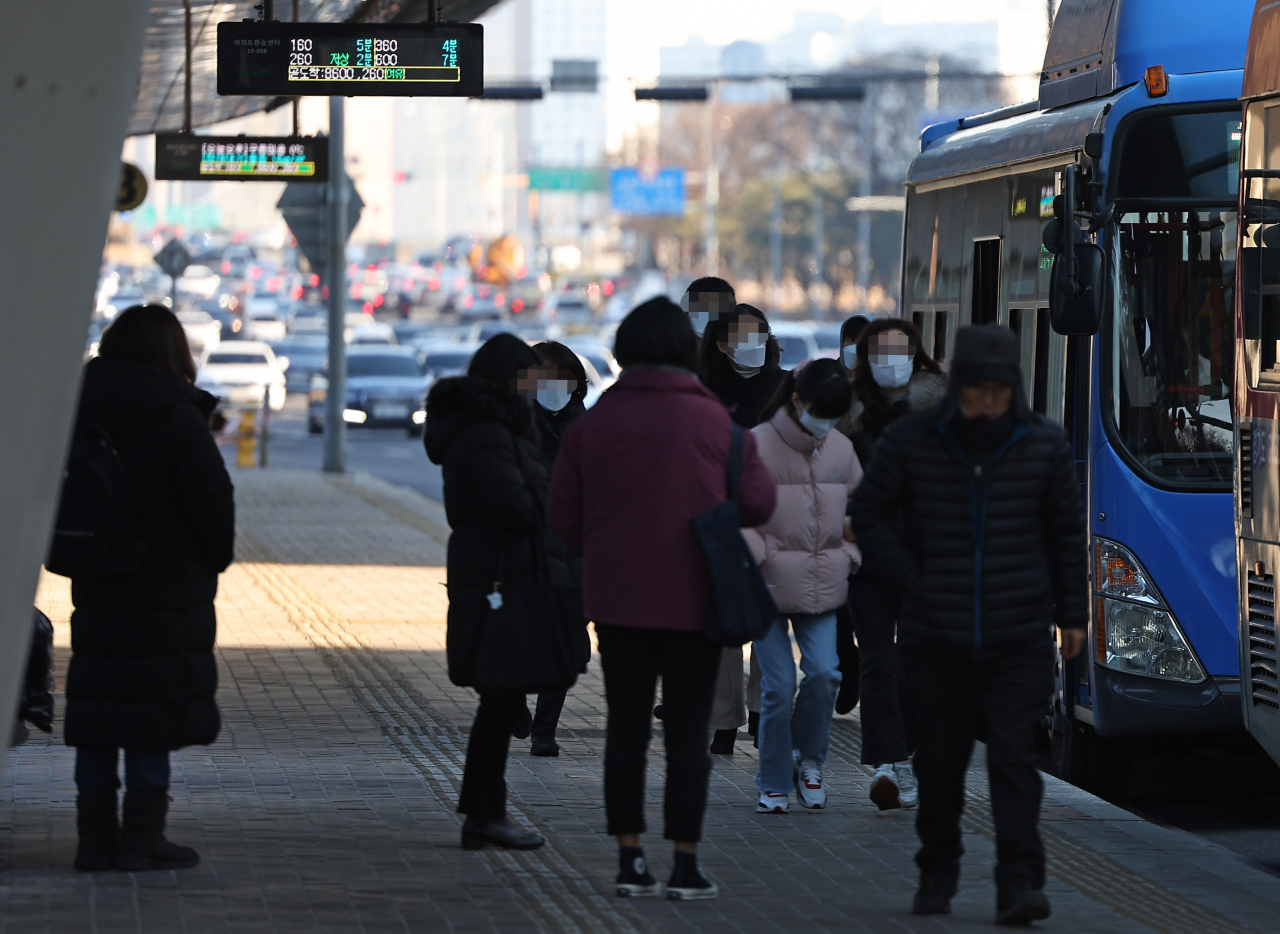 |
Pedestrians are seen at a subway platform of Sindorim Station in Seoul on Thursday. (Yonhap) |
The Seoul Metropolitan Government announced Thursday that it would raise the fares for the public transit system in South Korea's capital by as early as April 2023 for the first time in about eight years.
While the city did not confirm the degree of the fare increase, it projected subway and bus fares to rise by 300 won (24 cents) to keep the public transportation system afloat.
Currently, adults in Seoul pay 1,250 won for a regular subway fare and 1,200 won for a regular bus ride.
The fare hike would allow public transit operators in Seoul to cover 70-75 percent of the cost of operations per fare trip, according to the local government. Under the current system, only 60 percent of the cost would be covered in the near future, authorities added.
City officials cited ballooning financial strain from the growing operating costs and declining profits, paired with the rising number of senior citizens who ride for free.
These factors led to a lack of spending to replace old assets with new ones. According to Seoul, 2 in 3 subway facilities have operated past their durability period.
"For the past eight years, (Seoul) has sought to keep a fare hike at bay for the sake of the public’s welfare, but we've already reached a breaking point at which the losses cannot be offset by (Seoul's) self-sustaining efforts and financial supports," Baek Ho, deputy mayor of the city transportation office at the Seoul Metropolitan Government, said in a statement.
"(Seoul) will continue to provide a safe environment and improved service in the public transit system for citizens and future generations."
 |
Pedestrians are seen at a bus stop in Yeouido, Seoul on Thursday. (Yonhap) |
This is the latest move by Seoul, home to some 9.5 million people, to address its shrinking population and rapid increase of senior citizens in proportion to the total population.
Korea is considered the world’s most rapidly aging nation among economies with gross domestic product per capita of at least $30,000, with a rapid rise in the proportion of those aged 65 or above out of the total population. Meanwhile, its birthrate is the world's lowest, with less than one child per woman being born throughout her lifetime since 2018.
On top of the drastic demographic shift, the latest annual budget of the Yoon Suk-yeol administration passed the previous week indicated that a one-off subsidy of 358.5 billion won to local governments to subsidize free travel for seniors and the disabled would not be provided. The subsidy plan was proposed by lawmakers of the National Assembly, but failed to pass the plenary session.
Seoul last experienced a fare hike for subways by 200 won and buses by 150 won in June 2015.
Since then, Seoul's subway system has suffered annual losses of 920 billion won on average from 2018 to 2022. Losses of buses in Seoul averaged 540 billion won during the same period.
The fare hike decision will be preceded by consultation with other local governments in Gyeonggi Province surrounding Seoul and the port city of Incheon, which are accessible via Seoul's public transit system. The decision will also be preceded by a public hearing and discussion with the Seoul Metropolitan Council over the plan and an approval by Seoul's in-house policymaking committee.





![[Herald Interview] 'Trump will use tariffs as first line of defense for American manufacturing'](http://res.heraldm.com/phpwas/restmb_idxmake.php?idx=644&simg=/content/image/2024/11/26/20241126050017_0.jpg)
![[Health and care] Getting cancer young: Why cancer isn’t just an older person’s battle](http://res.heraldm.com/phpwas/restmb_idxmake.php?idx=644&simg=/content/image/2024/11/26/20241126050043_0.jpg)
